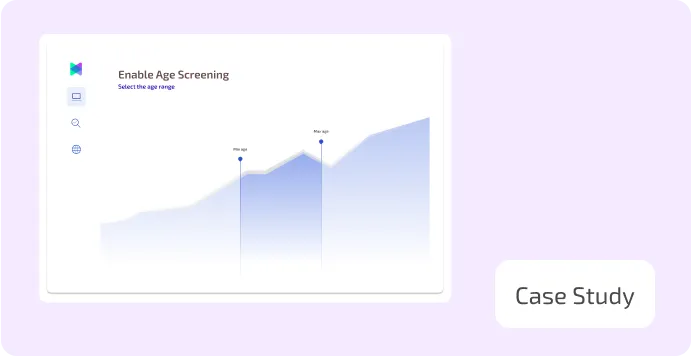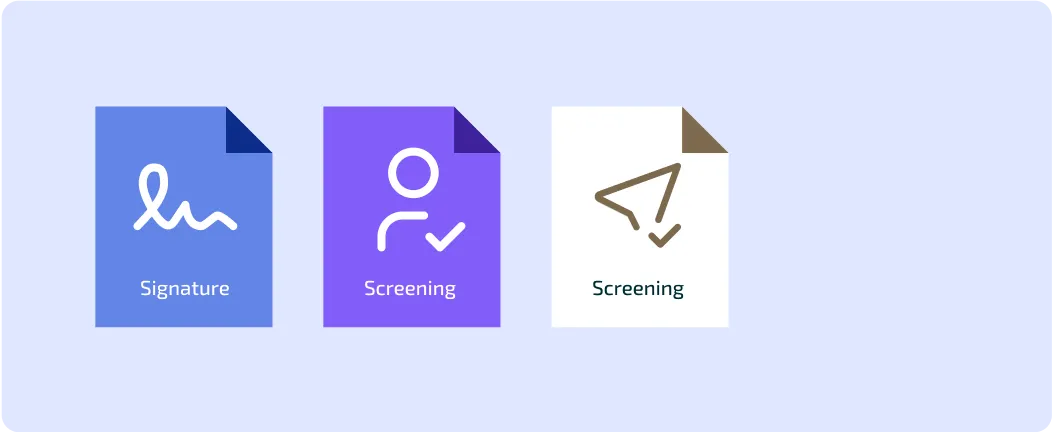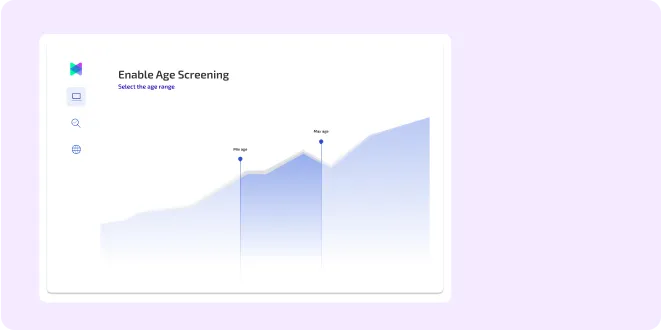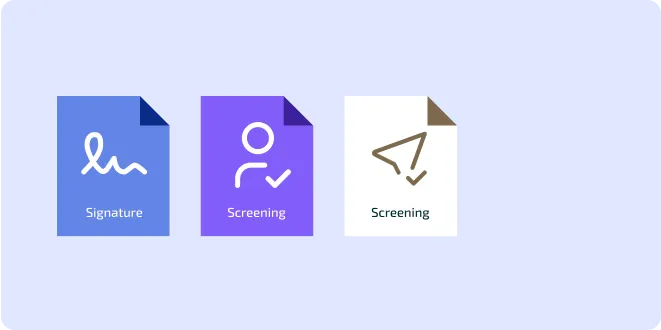.webp)
Published on
March 18, 2025
What is Know Your Transaction (KYT), and Why Does it Matter?
In this story
.png)
Comply quickly with local/global regulations with 80% less setup time
.svg)
.svg)
Know Your Transaction (KYT) is a process where financial institutions closely monitor and analyze financial transactions to identify suspicious activities, such as money laundering or fraud.
As digital payments and cryptocurrencies become more common, the need for better transaction monitoring is growing. KYT comes in to examine actual transaction details, it helps institutions detect potential crimes.
Although implementing KYT systems can be costly, the cost of failing to catch illicit activity could be even higher, both in financial penalties and reputational damage.
What is Know Your Transaction (KYT)?
Know Your Transaction (KYT) is a method banks and other financial institutions use to keep track of transactions and ensure they're not being used for illegal activities like money laundering or fraud. The monitoring of transactions in KYC keeps an eye on every financial move to make sure everything is above board.
However, unlike Know Your Customer (KYC), which focuses on who you’re doing business with, Know Your Transaction focuses on the actual transaction itself with the goal of spotting unusual or risky behavior in transactions that could indicate something fishy is going on.
Know Your Transaction digs into each transaction to know:
- Who's involved
- Where it’s going
- How often it happens
Comply quickly with local/global regulations with 80% less setup time
.svg)
.svg)
Why is Know Your Transaction Important?
The main role of the Know Your Transaction process is to help financial systems protect themselves by making sure transactions are legitimate.
So, it is not only about staying safe from financial fraud but also making sure they follow the AML/CFT regulations and comply with international as well as national regulators in their country.
Below we discuss the main benefits of Know Your Transaction:
1. Achieve Legal Compliance
KYT Know Your Transaction helps banks and financial institutions follow laws designed to stop financial crimes. Flagging unusual transactions ensures that institutions can report suspicious activities, reducing the risk of fines and maintaining a good reputation.
2. Prevent Financial Crimes
Get better protection from crimes like money laundering and fraud. Know Your Transaction watches transactions in real time, identifying patterns that could signal illegal activity. This allows FIs to take action before issues escalate and provides valuable information to law enforcement.
3. Strengthen Risk Management
Improve the ability to manage risk by gaining detailed insights into customer behavior. With Know Your Transaction, financial institutions can assess each transaction’s risk and focus their attention on higher-risk ones, reducing the chance of missed threats.
4. Boost Operational Efficiency
Save time and money by automating transaction monitoring. Know Your Transaction speeds up the process of identifying suspicious activities, cutting down on manual work and making it easier to handle large volumes of transactions without compromising quality.
5. Enhance Customer Understanding
Deepen the understanding of customer behavior by analyzing transaction patterns. KYT Know Your Transaction adds valuable insights to KYC (Know Your Customer), helping banks create more accurate risk profiles and detect potential issues sooner.
How Does Know Your Transaction Work?
Here’s how Know Your Transaction KYT typically works in a bank and other financial institutions:
- Data Collection: The first step is collecting information about each transaction, such as the amount, where it’s coming from, and where it’s going.
- Risk Assessment: Then, the transaction monitoring system looks at the transaction to see if anything seems unusual like an unexpected large sum or a transfer to a high-risk country.
In other words, the data gathered from transactions is checked and given a risk score. This score is based on information like what type of transaction it is, who is involved, and where the transaction is happening. This helps to spot any potential risks or issues, like fraud or illegal activity, early on.
- Ongoing Monitoring: Once transactions are flagged, the system continues to watch them in real time, looking for patterns that might suggest something illegal is happening.
- Alert and Action: If something seems wrong, the institution investigates further and if a transaction is determined to be suspicious, the institution is obliged to report it to the authorities.
5 Key Considerations When Setting Up Know Your Transaction
Implementing KYT services might sound easy, but there are a few factors to think about:
- Data Quality: You need good, clean data for KYT compliance to work well. Without this, your system might miss important details.
- Regulations: The rules around KYT can change quickly, so it's important to have a flexible system that can adapt to new laws and regulations.
- False Positives: KYT systems sometimes flag transactions that aren’t actually suspicious. Over time, the system can be fine-tuned to reduce these false alarms.
- Costs: Implementing a Know Your Transaction (KYT) system requires an initial investment in automation and data management, but over time, it can lead to cost savings by reducing manual tasks and allowing staff to focus on higher-level work such as investigations.
- Privacy: Know Your Transaction KYT involves a lot of sensitive financial data, and managing privacy is key. Financial institutions need to make sure they are complying with privacy laws like GDPR.
How to Use Know Your Transaction for Anti-Money-Laundering
Know Your Transaction systems are a powerful tool for preventing money laundering and here are the KYT AML benefits:
1. Monitor Transaction Activity
KYT compliance helps financial institutions track transaction patterns in real time, identifying any unusual or suspicious behavior, so for example, if a customer makes large transfers suddenly or frequently sends money to high-risk jurisdictions, these activities are flagged for review. Continuous monitoring ensures that suspicious actions are noticed quickly.
2. Apply a Risk-Based Approach
KYT AML assigns a risk score to each transaction based on factors like transaction amount, frequency, and the parties involved. This helps prioritize higher-risk transactions, allowing institutions to focus attention on areas that pose the greatest risk while reducing unnecessary checks for lower-risk activities.
3. Work with Know Your Customer (KYC)
KYT works alongside KYC, which focuses on customer identity verification and background checks. While KYC looks at who the customer is, KYT monitors their ongoing behavior. The monitoring of transactions in KYC provides a complete picture that makes it easier to detect discrepancies between what a customer claims and their financial actions.
4. Flag Suspicious Transactions
Know Your Transaction flags transactions that deviate from normal behavior, such as large, rapid transfers, or transactions involving high-risk countries. When this process gets automated, it helps institutions quickly identify and investigate potentially illegal activities without manual effort.
5. Ensure Compliance with Regulations
KYT services help financial institutions comply with AML regulations like the Bank Secrecy Act (BSA) and FATF guidelines. Constant monitoring and flagging of suspicious transactions ensures that institutions meet regulatory requirements and report illegal activities as needed.
6. Adapt to New Threats
As new methods of money laundering emerge, like cryptocurrency-related transactions, KYT algorithms are updated to detect these new threats.
7. KYT and Cryptocurrency Transactions
Crypto transactions can be tricky. Since they happen on blockchains that aren’t linked to real-world identities, it’s harder to track who’s behind the transactions. But with Know Your Transaction Crypto, financial institutions can analyze blockchain data, trace wallet addresses, and see transaction flows, and thus we can say that Know Your Transaction Crypto makes it possible to spot risky behavior even in the world of digital assets.
Read more: A Comprehensive Guide of KYC Crypto: What is It and How is It Regulated?
Know Your Transactions with FOCAL Platform
Modern KYT tools, like FOCAL, help institutions keep track of transactions in real-time, providing alerts whenever suspicious activity occurs.
FOCAL platform empowers financial institutions with:
Dynamic Scenario Builder: Easily design, adjust, and refine transaction monitoring scenarios to minimize false positives and boost accuracy.
Customizable Library Rules: Tailor rules to pinpoint suspicious activity, fine-tune risk scoring, and personalize assessment criteria for greater precision.
Real-Time Monitoring: Track transactions in real-time to stop payments to sanctioned or high-risk entities before they go through.
Conclusion
Many organizations are turning to Know Your Customer outsourcing services to streamline their monitoring of transactions in KYC processes, and this ensures faster onboarding times and minimizes the risk of regulatory penalties.
Also, as digital payments grow, knowing your transaction online becomes essential for both AML/CFT compliance and customer trust.
Comply quickly with local/global regulations with 80% less setup time
.svg)
.svg)

How Aseel reduced onboarding time by more than 87% using FOCAL
Learn how FOCAL empowered Aseel to achieve new milestones.
.svg)
.svg)
Mastering Fraud Prevention: A Comprehensive Guide for KSA and MENA Businesses
51% of organizations fell victim to fraud in the last two years, don't be caught off guard, act proactively.
.svg)
.svg)
Featured blog posts





AI-Driven Precision in Fraud Risk and AML Compliance
.svg)
.svg)

.svg)
.png)




.svg)


.webp)


.webp)
.webp)


.svg)








%20(1).webp)
Comments
Leave a Reply
Comment policy: We love comments and appreciate the time that readers spend to share ideas and give feedback. However, all comments are manually moderated and those deemed to be spam or solely promotional will be deleted.